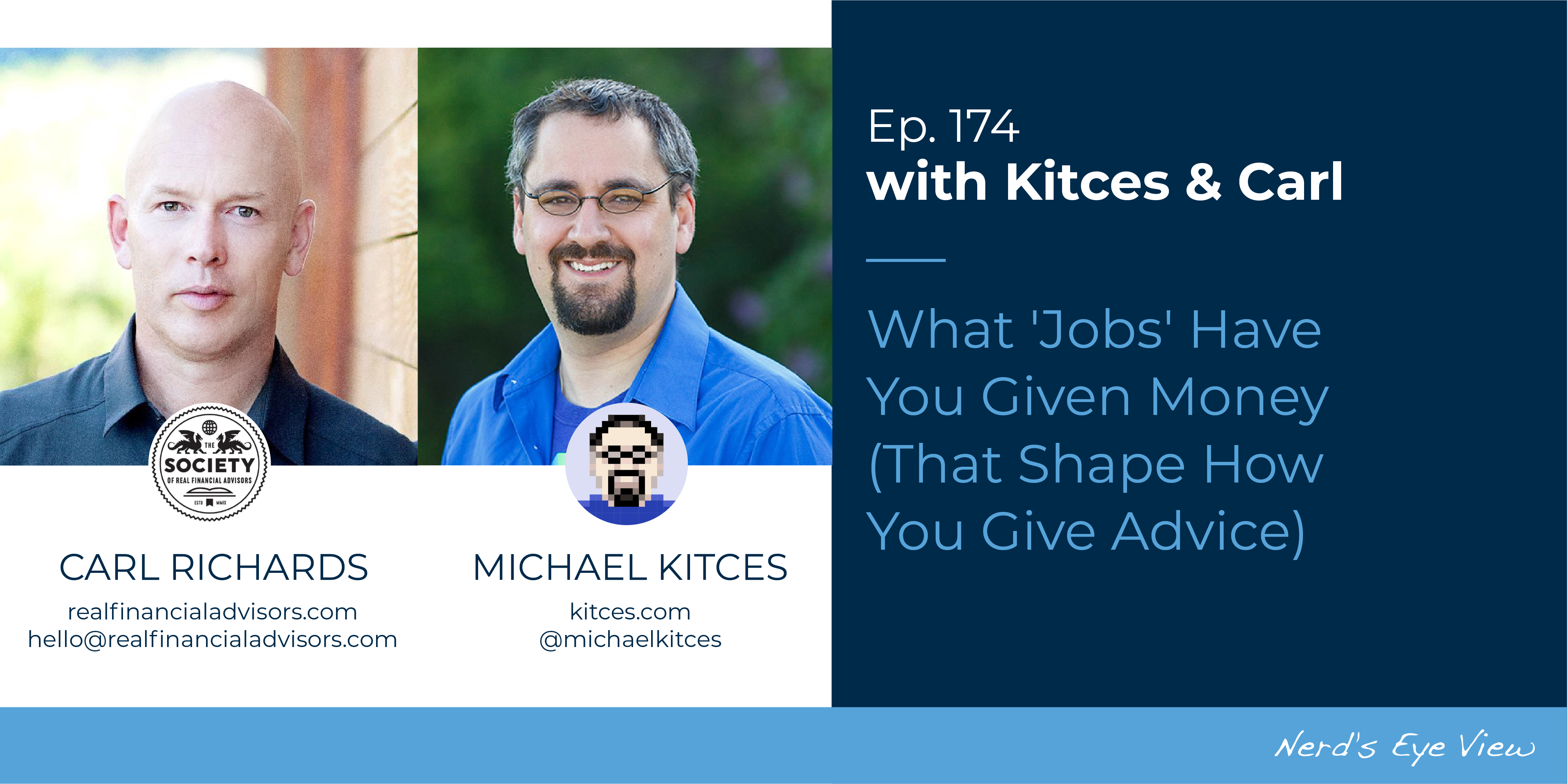The profession of financial advice often centers on the logistical, logical outcomes of financial planning – spending down retirement assets, mitigating sequence of return risk, and preparing contingency plans. This data-driven planning is crucial for delivering reliable advice. Yet, at the same time, each financial advisor also carries their own understanding and ‘story’ around money – which can influence how and why they give financial advice in the first place!
In this 174th episode of Kitces & Carl, Michael Kitces and client communication expert Carl Richards discuss the ‘jobs’ they have given money in the past, how those roles shape their present relationship with money, and why advisors may benefit from reflecting on their own money histories relative to the advice they give.
A few central questions can serve as springboards for self-reflection:
If money walked into the room, what would you ask it?
If money could talk, what would it say to you?
What jobs have you asked money to do that it can’t really accomplish?
Money can represent many things in individual lives: a tool, a temptation, a distraction, a path to independence, a triumph, and countless other roles. Because it’s so central to life – from vocational training and working to budgeting and daily decision-making – it’s natural to give money a ‘job’. For some, that job is delivering an emotional outcome such as security, safety, or achievement. For others, money may function more simply as a tool. Yet both of these approaches have limitations. Those who expect money to provide certain emotional outcomes may be disappointed when they never earn (or save) ‘enough’ to yield whatever feelings they seek. And those who view money as the only tool needed to fix all problems – rather than simply one tool among many – may be frustrated when dollars alone don’t provide the solution. Still, money can also be intrinsically tied to many positive experiences: independence, opportunities, and the resources to navigate through many life transitions.
Grappling with one’s personal money story takes considerable time and energy. Yet, similar to how many therapists undergo therapy themselves to avoid projecting onto clients, advisors may benefit from identifying ways that their own ‘money jobs’ have shaped their approach to giving financial advice. These questions are not necessarily client-facing on their own, but over time, the themes they raise may emerge naturally in various client conversations as clients explore their own intersections of money and meaning.
Ultimately, the key takeaway is that money, while essential, is still only a tool. Its power comes from being connected to goals and values that transcend it: freedom, impact, meaning, and connection. Advisors who bring awareness to their own money stories are better equipped to help clients navigate theirs. By reflecting on the jobs money has played in their own lives, advisors can create space for clients to find deeper clarity, alignment, and dialogue in the long run!


























